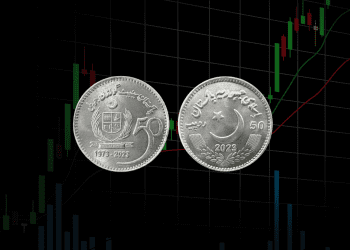According to John J. Mearsheimer, a noted US scholar at the University of Chicago, international politics is a continuous struggle for power, with states striving to become dominant players. In the introduction to his revised edition of The Tragedy of Great Power Politics, Mearsheimer argues that the global political system will always be marked by competition among great powers, as the desire for hegemony – or sole dominance – drives state ambitions. With global power remaining unattainable for any one nation, nations instead vie for influence, leaving the world in a perpetual state of competition and unrest.
The recent surge in global tensions, highlighted by conflicts in the Middle East, the rise of BRICS (Brazil, Russia, India, China, and South Africa), and the Shanghai Cooperation Organisation (SCO), reflect Mearsheimer’s theory in real-time. Nations from the global North and South are polarized, with countries such as China and Russia challenging existing power structures and seeking to establish a multipolar world.
BRICS Summit and Shifting Economic Alliances
The BRICS summit in Kazan, spearheaded by Russian President Vladimir Putin and Chinese President Xi Jinping, underscored a commitment to reforming the global financial system and building new economic structures independent of Western influence. President Xi reaffirmed that China and Russia aim to strengthen coordination across multilateral platforms to create a “just world order,” positioning their strategic partnership as a stabilizing force amid global uncertainties.
Economic Power within BRICS
With China comprising approximately 60% of the BRICS economic output, it has the capacity to provide investment and loans to other member nations, solidifying its influence. President Putin stressed the significance of a BRICS-led financial messaging system akin to SWIFT, which Western sanctions have restricted Russian banks from accessing. The goal of such a system is to shield BRICS nations from external economic pressures and pave the way towards a “more democratic and just world order.” Notably, over 40% of the world’s GDP growth in the last decade has originated from BRICS nations, making the bloc a crucial force in the global economy.
| Topic | Key Points |
|---|---|
| BRICS Financial Initiatives | Focus on creating a SWIFT-like system to avoid Western sanctions; aim to reduce reliance on external financial systems. |
| China’s Economic Role | China comprises 60% of BRICS output, enhancing its influence by offering investments and loans to member nations. |
| Long-term Vision | BRICS intends to construct a multipolar world with economic sovereignty, reducing dependency on Western influence. |
SCO’s Drive for Financial Independence
Following similar aims of economic sovereignty, the Shanghai Cooperation Organisation (SCO) has prioritized financial initiatives that favor using national currencies in mutual trade. Some SCO members, including Pakistan, have adopted bilateral currency swap agreements, allowing them to trade directly in local currencies without relying on the US dollar. Pakistan’s integration of the Raast payment system with the Arab Monetary Fund’s Buna platform allows for rupee-based transactions with Arab countries, marking a milestone in Pakistan’s path toward economic sovereignty.
SCO’s Upcoming Financial Institutions
At the recent SCO summit, member countries proposed establishing new financial institutions, including the SCO Development Bank, the SCO Development Fund, and the SCO Investment Fund. These institutions are expected to drive economic integration, support trade, and enhance regional connectivity, embodying the “Shanghai spirit,” which emphasizes equality among member nations regardless of size or power.
| SCO Financial Initiatives | Details |
|---|---|
| Currency Swap Agreements | Bilateral currency swap agreements reduce dependence on foreign currencies, especially the US dollar. |
| Upcoming Financial Institutions | SCO Development Bank, Fund, and Investment Fund to support regional trade, connectivity, and economic integration. |
Western Response and Future of Global Economic Power
While the US and Western allies have dismissed the potential of BRICS as a geopolitical rival, concerns persist. The Ukraine conflict and Russia’s diplomatic moves have placed BRICS and the SCO at the center of an emerging geopolitical shift. Former Goldman Sachs economist Jim O’Neill noted that while BRICS nations, particularly China and India, remain in competition, cooperative signs could increase BRICS’s strategic influence globally.
Amid global challenges, developing nations are adopting economic policies to counter the influence of Western sanctions, which, they argue, hinder economic sovereignty and undermine free trade. According to analyst Aqdas Afzal, economic thought has shifted from free trade to strategic trade, where state power now dictates competitive advantage, significantly impacting developing nations’ ability to grow in a protected global economy.
Conclusion: Towards a Multipolar World Order?
As BRICS and SCO member nations expand their economic strategies to prioritize local currencies, build sovereign financial systems, and reduce reliance on Western economic structures, the global power balance appears to be shifting. With BRICS nations accounting for a substantial share of global economic growth and the SCO advocating multilateral cooperation, the ambition for a multipolar world order seems increasingly viable. However, it remains to be seen whether these nations can fully insulate their economies from the influence of established Western powers and create a truly independent economic ecosystem.
















